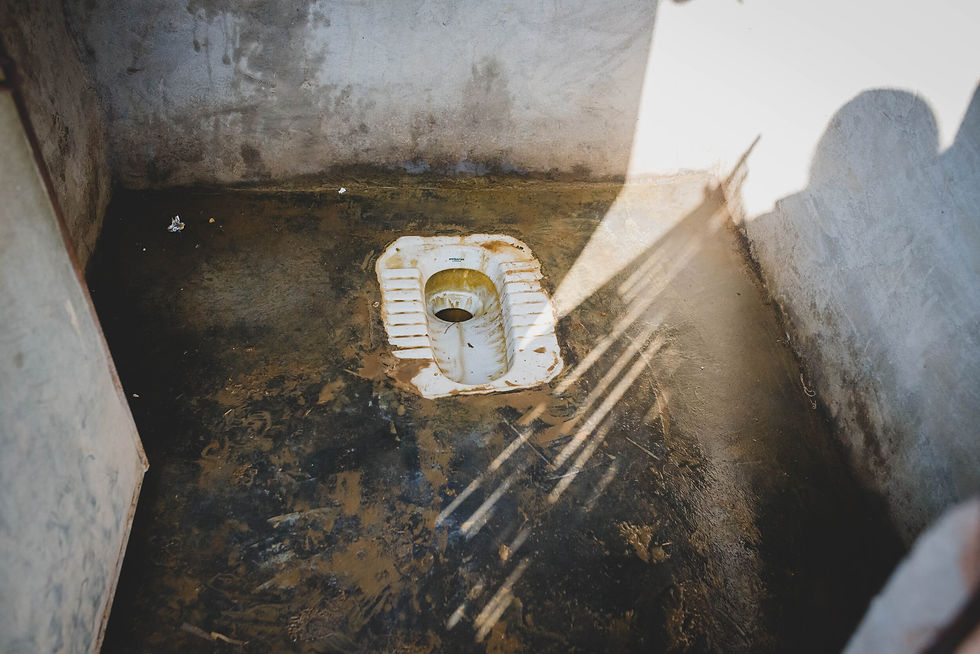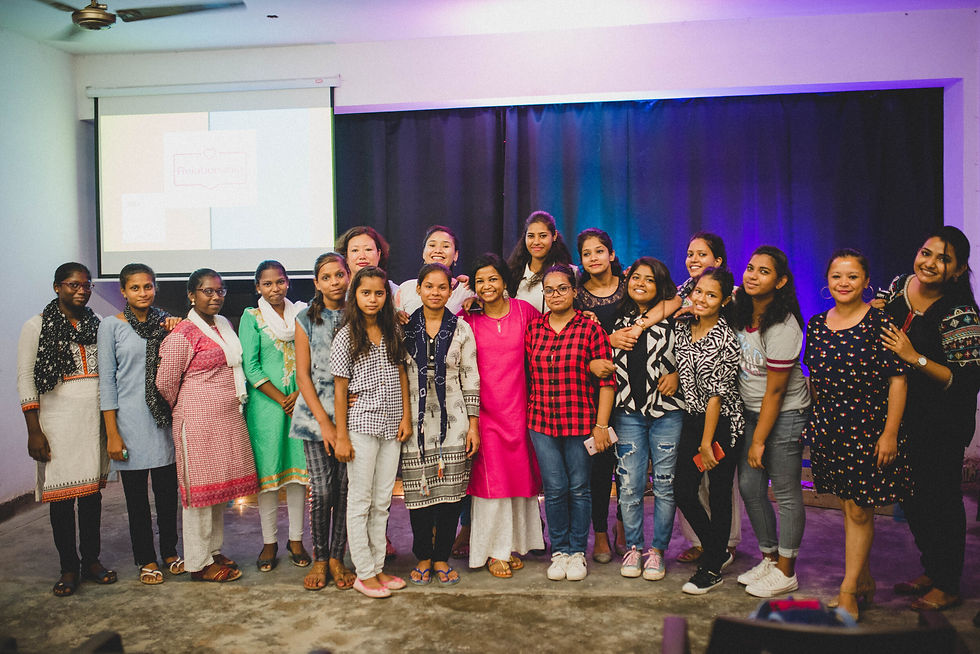Three years ago I met Binita* and her extended family. From a rural village in a neighboring state, Binita's family migrated to the National Capital Region in India. They needed work. The city provided more opportunities for job than they had ever experienced. Binita was the 50-year-old auntie of the family, living in an 80 sq. foot apartment. Inside the apartment I saw one wall lined with shelves holding clothes, blankets, pots, dishes, soap, and a few photos. The only furniture was a small wooden bed and a low stool. “I have worked in this city for the past seven years, I do housework for a wealthy family,” Binita told me. “I left my job two months ago. I haven’t been able to find another.” Her meager living conditions did not reflect someone with steady employment. As we talked, she told me that her job required that she work seven days a week. In the years she worked for this family, she did not miss one day. “I worked everyday for seven years, even when I was sick, but my body is not able to keep working like that. I needed rest.” Binita told this to her employer and she was promptly let go.

Our ministry volunteer, Chitra*, is educated, experienced, and trustworthy. She's the kind of worker any company would want. But, she's a woman. In her world, that is not an asset. In her previous job, she was moved from a corporate office to work at a construction site. She did her job in a small structure on site with no bathroom facilities. She was the only female employee at that location. “My apartment was 20 minutes travel from my place of work. Every day I went home at lunchtime so that I could use the bathroom,” she said. Her employer made no accommodations for her for the entire year that she worked at that site.

Our ministry volunteer, Chitra*, is educated, experienced, and trustworthy. She's the kind of worker any company would want. But, she's a woman. In her world, that is not an asset. In her previous job, she was moved from a corporate office to work at a construction site. She did her job in a small structure on site with no bathroom facilities. She was the only female employee at that location. “My apartment was 20 minutes travel from my place of work. Every day I went home at lunchtime so that I could use the bathroom,” she said. Her employer made no accommodations for her for the entire year that she worked at that site.
In her workplace, Chitra felt a sense of shame. It mattered little that she worked hard, did all that was asked, and rarely complained. Her employer did not see her need as important or necessary. He did not see her as someone that needed to be lifted up out of this humiliating circumstance.

Two women, each coming from a different background and social status. One raised in a middle class home and received a well-regarded education. The other woman grew up in a small rural village. Like many other girls, Binita forewent school to help with housework and care for younger siblings. In the workplace, these two women found some commonality. Both experienced humiliating and dehumanizing working conditions because of their gender.

While Jesus was teaching on the Sabbath, he was confronted with a woman who was not cared for in her work. She was “bent double and could not straighten up at all.” When Jesus saw the condition she was in, he called her over to himself, laid his hands on her and lifted her up. “Immediately,” the bible says, “she was made erect again and began glorifying God.” The Bible writer doesn't tell us the cause of this woman’s physical malady. But there is textual support that her deformation is a result of her work. The synagogue official and Jesus both mention ‘work’ when talking about this woman and her condition. The synagogue official, indignantly states that no work should be done on the Sabbath. (The work he refers to is Jesus’ healing a disabled woman on the Sabbath). In response, Jesus exposes that they show more deference to their work animals than they do to this woman. When Jesus demonstrates humane treatment toward the woman, her humiliation lifted. And His opponents humbled (Luke 13:10-17).
In Jesus’ day and our own, women are often treated poorly in the workplace. In India, one often sees women stacking bricks and heavy water jugs on their heads. As they age, the physical toll of the work bends their spine. The psychological toil makes them hang their heads. When Jesus touched and healed this woman, she stands straight, praising God. With Jesus as our example, we also should be setting women free from work that disables them.
Many of India’s poor women work as housekeepers. They are trained from youth to cook, clean, care for children, and manage a household. The job is considered honorable. But when your employer is the homeowner, there is no one else to petition for more reasonable work conditions. Their treatment is at the discretion of their employer. If they complain, there are plenty of other women available for the job.

At our ministry location in India, one such woman came looking for work. Mahima is a young woman. At the time, she was married for a year or so with one son, a toddler. Although her husband worked most of the time, the money wasn’t enough for their modest needs. Mahima had to work. For the past two years, Mahima has been working for us, as many hours as she could get. Unlike her former job, she can adjust her work hours to be home with her son when her husband works. If necessary, she can bring her son to work with her. Instead of insisting she not miss any days, she is encouraged to stay home if her son is ill. Her hours are intentionally limited because she is a wife and mother with a home of her own. Mahima is thriving. She receives a good wage, and is respected, appreciated, and loved.
If God's people involve themselves in job creation, they must consider women. They should make those jobs dignifying. That's the very thing we are trying to do. Jesus saw her, a woman that was low to the ground, physically and socially.
He acknowledged her faith ("daughter of Abraham"). Then speaking to the powers, he puts them to shame by lifting her up. That is now our responsibility.
Work does not have to bend women low. Work can educate and empower. It can dignify the worker. Women should also be able to hold their heads high.
Join us to consider offering dignifying jobs to more women. Or start further back, helping a girl go to school, find an internship, or receive job training. Together we can lift them up to glorify God!
* Names changed for the privacy and protection of the subject.

Comments